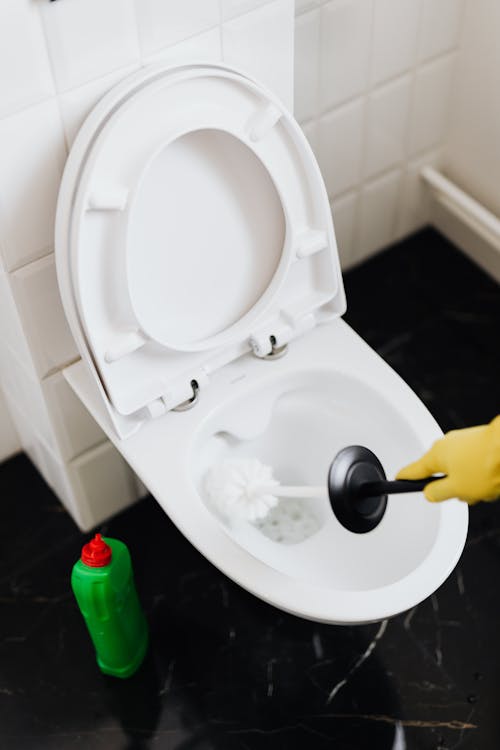Work addiction: are you workaholic?
 Loving and doing your job well is a good thing. Some employees are more hardworking than others, but beware, some of them can unfortunately be workaholics : they suffer from work addiction .
Loving and doing your job well is a good thing. Some employees are more hardworking than others, but beware, some of them can unfortunately be workaholics : they suffer from work addiction .
Workaholism or work addiction: symptoms, consequences, advice
Are you workaholic? A few avenues to find out
People who work hard are often admired, but some of them may suffer from Workaholism. It is about a pathological relation of a person to his work . How do you know if you are one of those dependent employees at work?
A heavy worker takes all the necessary steps to get his job done. He can work for long hours, during a one-off, intensive period. Objectives and deadlines are clearly defined. He knows how to easily drop out when his job is finished, and takes time to be with those close to him.
A workaholic :
- devotes the majority of his time to his work
- spends more time at work than expected
- works to forget feelings of guilt or depressive thoughts
- stress if something prevents him from working
- sacrifice free time to work more
- sacrifices sleep and diet
- puts family and friends in the background
- struggles to accept failure, weaknesses and criticism
- is depressed and anxious if he does not have a job or a very high goal
- has an unbalanced life
- may have insomnia or high blood pressure
- has a great need for control
- is often advised to work less
If you answer yes to at least three of the following questions , then you are certainly affected by Workaholism:
- Do you have more enthusiasm for professional, family or other activities?
- Do you work at home in the evening? Week ends ? During the holidays?
- Is the activity you enjoy the most and talk about the most your job?
- Don’t your family and friends even imagine seeing you arriving on time?
- Do you regularly work overtime because you fear your work will not be finished otherwise?
- Do you work more than 40 hours per week?
- Are you annoyed when someone asks you to stop working and do something else?
- Do you think about your job when you are behind the wheel, before you fall asleep, or when someone is talking to you?
- Do you think it’s okay to work long hours, as long as you like what you do?
- Can you lose patience with people who have other, extra-professional priorities?
- Are you afraid of losing your job, or coming off as a loser, if you don’t work hard enough?
Consequences of Workaholism
When you are a workaholic, it is difficult to change your behavior, even if the consequences of this addiction are negative for health, family life, social relations, and even the business.
A dependent employee at work suffers from chronic stress, which can lead to major physical and mental health problems (migraines, high blood pressure increasing the risk of cardiovascular disease, indigestion, ulcers, muscle pain, chronic fatigue, etc.). Since the immune system is affected, the employee is more likely to have other illnesses.
On an emotional level, a workaholic may be irritable, impulsive, sad, listless, angry, hypersensitive, desperate and feel insecure. He can easily be in a burnout situation .
A workaholic puts his social life aside. Friends feel left out. Family members feel neglected, ignored or sometimes used. In this situation, there are more divorces. Children develop obsessive and perfectionistic behaviors, and most likely can develop the same addiction in the future. All relatives suffer from this disease.
For the company, an employee or a workaholic boss is not always a good thing: strict, not very collaborative, lack or absence of confidence, little team spirit, employee exhaustion, easy criticism, difficulties to thank, errors of judgment …
In addition, a dependent person at work may try to reduce their suffering by taking medication, drugs, or alcohol abuse.
Some tips to stop being workaholic
Once the person is aware of their work addiction, here are some tips that can be given:
-
 Respect your sleeping hours
Respect your sleeping hours- Exercise for at least 30 minutes a day
- Consult a professional (psychologist or psychotherapist)
- Eat on a regular and balanced basis (no longer skipping meals or choosing fast food as an easy way)
- Plan your work and set clear goals, to have a working time limit during the day
- Avoid talking about your work all the time
- Devote at least one day a week to loved ones
- Take an interest in what others are doing
- Be more motivated by work than results
- Think about the right to disconnect
- Separate professional and family life as much as possible to avoid a blurring situation
- Ask relatives and colleagues how they feel about your behavior
- Avoid checking your emails and notifications all the time
- Recognize a real emergency (everything is not urgent, everything does not have to be done in a minute)
- Take time for yourself by doing an activity (walking, reading, playing, cooking, etc.)